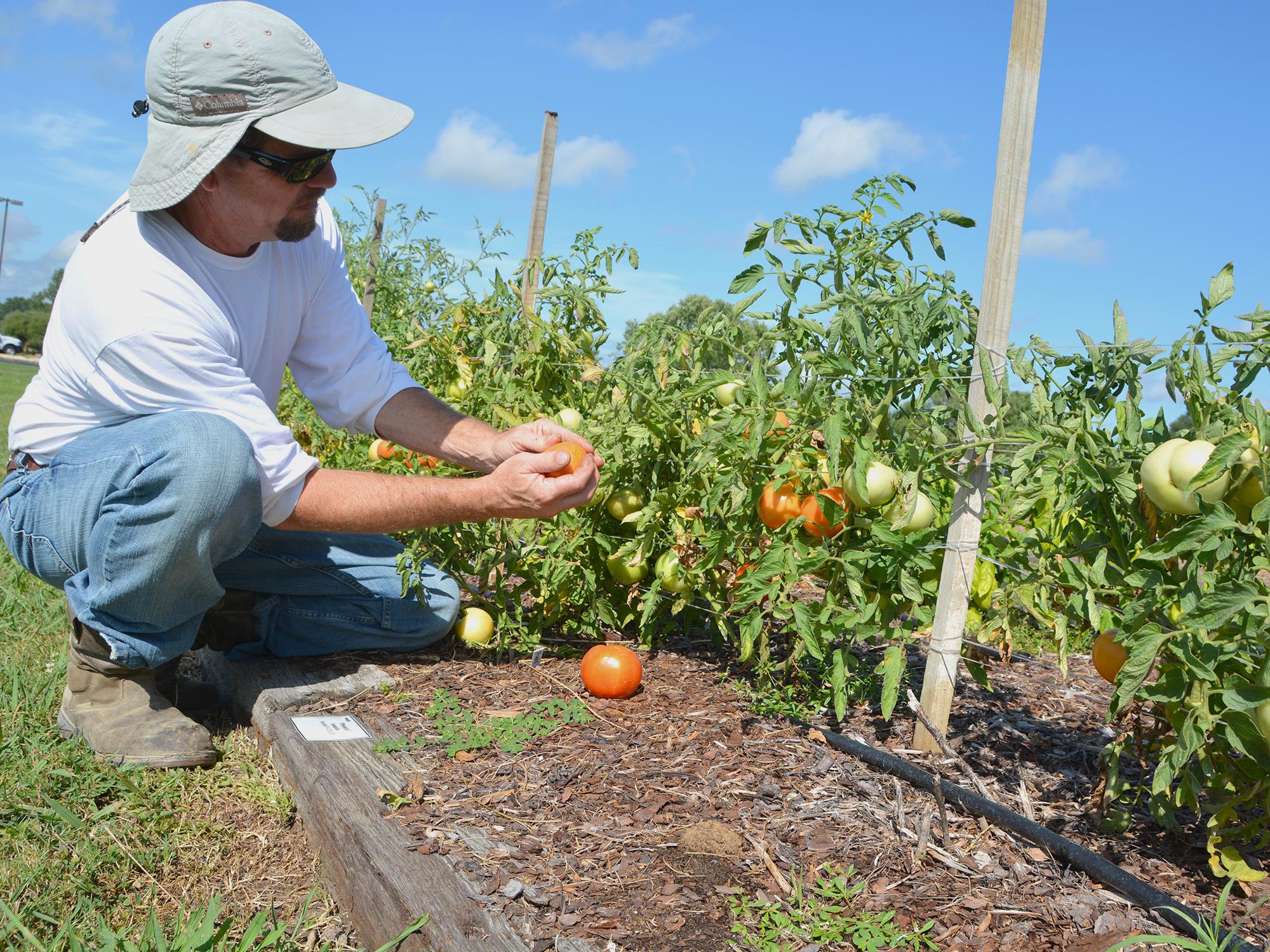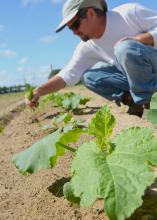Information Possibly Outdated
The information presented on this page was originally released on July 26, 2013. It may not be outdated, but please search our site for more current information. If you plan to quote or reference this information in a publication, please check with the Extension specialist or author before proceeding.
State truck crops have growing consumer value
MISSISSIPPI STATE – Greater consumer demand for locally grown produce has made truck crops a bigger part of the state’s overall agricultural production and increased related research at Mississippi State University.
Truck crops get their name from the fact that they are often sold from the back of pickup trucks. They are produce crops, including blueberries, strawberries, sweet corn, beans, tomatoes, watermelon, greens and squash.
Ken Hood, an agricultural economist with the MSU Extension Service, said the state has just over 6,700 acres in truck-crop production. These crops represent about 2 percent of the state’s overall value of production in agriculture. Excluding sweet potatoes, these crops bring about $48 million to farmers.
“Truck-crop production in Mississippi increased about 4 percent in 2012 over the previous year’s value of production. It has doubled in production value since Hurricane Katrina hit in 2005,” Hood said. “The increase has been due to the growing interest in and public demand for locally grown foods. It appears that this trend is going to continue for the near future.”
While many Mississippians have a small garden patch in the backyard, growing fruits and vegetables commercially is hard work and can require a significant investment.
“Crops like tomatoes and strawberries require upwards of $6,000 an acre to grow,” Hood said. “They both produce good profits, but a grower must have a strong cash flow position to get to the selling point.”
Truck crops also require a lot of hand labor, especially at harvest time when labor costs can be half the cost of producing the overall crop. They are perishable, too, and usually must be harvested in one to three days once they mature.
Eric Lancaster and his wife, Anna, own Lancaster Farms in Starkville. They began the truck crops farm in 2010 and now have 12 acres of broccoli, cauliflower, lettuce, okra, tomatoes and more.
“We grow anything and everything and sell at the West Point and Starkville markets, to people who come to the farm and to some local restaurants,” he said. “When I started in 2010, we were trying to get a little extra income, then it started growing larger and larger, and we saw there was a big interest in local trucks crops among restaurants and others.”
The Lancasters start their own vegetable transplants during the winter in a greenhouse, and they also use a high tunnel to extend the growing season and grow early tomatoes.
Lancaster works part-time as a respiratory therapist with the goal of soon going full-time with his farming operation.
“When people get to know where I am and what I grow and how good it is, then this farm will grow,” he said.
MSU supports truck-crops agriculture with research plots at the Horticulture Unit in Beaumont, the Truck Crops Branch Experiment Station near Crystal Springs and the North Mississippi Research and Extension Center in Verona.
Thomas Horgan, a Mississippi Agricultural and Forestry Experiment Station researcher, completed a trial of 16 varieties of corn this summer and is conducting one now with 15 varieties of pumpkin.
“At the producer advisory meeting in February, I told the producers what I had done last year and asked them what they want us to study this year,” Horgan said. “They wanted a pumpkin evaluation, sweet corn evaluation and tomatoes.”
To conduct an evaluation, researchers plant new varieties and industry standards side by side, often growing similar plots in north and south Mississippi. Some test plots simply evaluate the relative performance of crop varieties, while other studies focus on variables such as nitrogen application rates or pest management.
“We welcome people to come out and look at our plots at any time, and we hold different field days and demonstrations for groups to visit,” Horgan said. “We also gather the data into reports and present this to growers at the next year’s advisory meetings and other events.”
Much of the state’s truck-crop production is sold through farmers markets. Find Mississippi farmers markets, restaurants and local producers at http://ms.marketmaker.uiuc.edu/. The Mississippi Department of Agriculture keeps a listing of established farmers markets at http://www.mdac.state.ms.us/departments/ms_farmers_market/farmers-markets-in-mississippi.asp.







